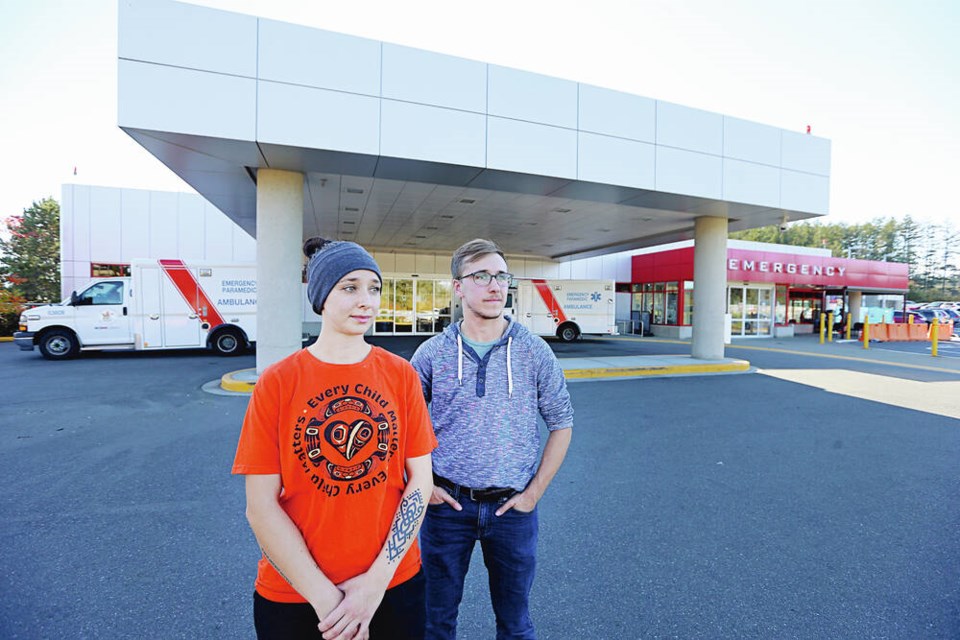Nursing students at the University of Victoria are advocating for changes to their unpaid practicum requirements to address the financial burden of pursuing a nursing degree.
Nursing students complete unpaid practicums during the summers between school years. While working up to 12-hour days in clinical practice, some are also working paid jobs to survive with a rising cost of living, said Addy Gawne, a fourth-year nursing student at UVic and co-president of the UVic Nursing Student Society.
“My peers [are] coming off of a 12-hour night shift — 7 p.m. to 7 a.m. — and then immediately rolling into their paid jobs, whether it was serving for eight to 16 hours or another nursing health-care related job,” Gawne said.
Gawne knows peers who have left the program because they couldn’t afford to continue or they burned out juggling practicum work with paid work. Many other fields pay students during practicum and co-op placements, such as engineering and work in the trades, he said.
Gawne and others at the student society are pushing for changes that would alleviate the financial strain for student nurses, whether by paying students during their practicums, waiving tuition for the nursing program altogether or allowing students to apply paid nursing work to their academic requirements.
Nursing students can work as employed student nurses, paid about $30 an hour and more, but the hours don’t count toward their practicum requirements, which amounts to about 760 hours just between third and fourth years, said Dzifa Dordunoo, acting director of UVic’s school of nursing.
Dordunoo said the school is working with students and exploring ways to address their concerns. The school is conducting a poll to understand the economic burden on students.
Allowing students to count their hours working as employed student nurses toward their academic requirements could have other useful impacts, Dordunoo said.
The current nursing shortage, leaving hospitals and other clinical sites understaffed, can make it difficult for students to find placements able to take them on, she said. But hospitals might be more likely to take on an employed student nurse who can shoulder some of the workload, rather than a student who requires a good learning environment, Dordunoo said.
That could make it easier for student nurses to get the practicum hours they need and graduate more nurses to address shortages, she said, but the idea would need to be explored further to ensure students are gaining the required competencies.
Counting hours worked as an employed student nurse could pose a challenge, as students are required to gain certain skills to graduate, and practicums are designed to fulfil those requirements, but the employed student nurse roles are not, said Adriane Gear, president of the 小蓝视频 Nurses’ Union.
However, the government should consider all options to encourage students to pursue a nursing education amid a critical shortage, she said.
“We need to remove barriers for qualified candidates to go into nursing school. And for the first time ever, we’re hearing of examples of empty nursing seats,” Gear said.
The province is at least 5,000 nurses short, and many nurses are retiring as early as they can or leaving mid-career because of the challenging working conditions in a shortage. Some units in the province are working with 50 per cent of the staff they should have, she said.
“It’s a challenge for sure. Care is delayed. Care is missed. There are negative patient outcomes. You know, it’s a very concerning situation right now in British Columbia,” Gear said.
>>> To comment on this article, write a letter to the editor: [email protected]




